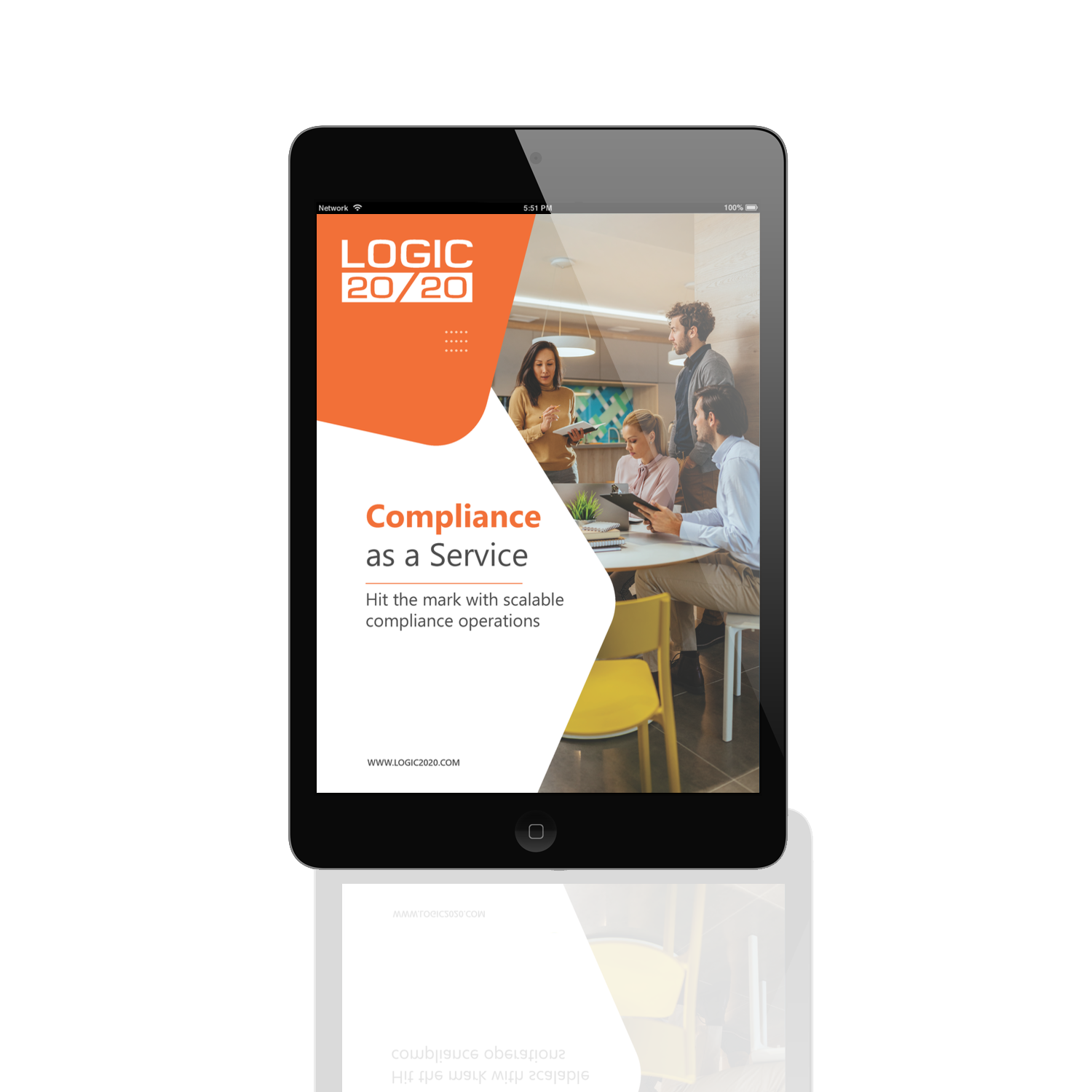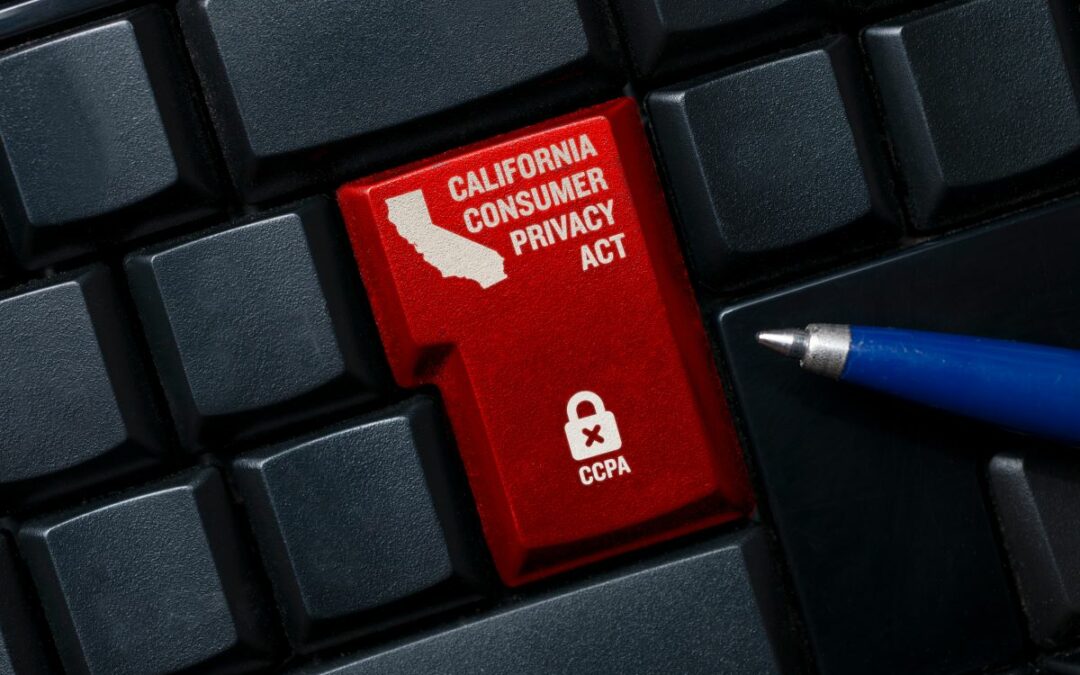Quick summary: Actionable insights and strategies to navigate CCPA compliance, safeguard consumer trust, and future-proof your business in an evolving data privacy landscape
The California Consumer Privacy Act (CCPA) represents a watershed moment in U.S. data privacy law, establishing some of the most comprehensive consumer rights protections in the country. Inspired in part by the European Union’s General Data Protection Regulation (GDPR), CCPA builds on the global push for greater transparency and accountability in how businesses handle personal data.
For businesses, compliance is not just a legal obligation—it’s an opportunity to build trust and loyalty among increasingly privacy-conscious consumers. At its core, CCPA empowers California residents with greater control over their personal information, giving them rights to know what data is collected, opt out of its sale, and request its deletion.
Navigating CCPA compliance, however, can be complex, particularly as the law evolves through amendments, regulations, and enforcement updates. In this comprehensive guide, we’ll break down what CCPA requires, explore actionable steps for businesses, and highlight key lessons learned since its enactment. Whether you’re refining existing compliance measures or building a program from the ground up, this resource will help you stay ahead in the ever-changing data privacy landscape.
Understanding CCPA
To build a strong foundation for compliance, businesses must first understand the core components of CCPA. At its heart, CCPA focuses on protecting personal information and ensuring transparency in how businesses collect, use, and share this data. Here’s what businesses need to know to determine their obligations under the law.
Definition of personal information
CCPA defines personal information broadly to include any data that identifies, relates to, describes, or could reasonably be linked to an individual or household. This includes:
- Identifiers: Names, addresses, email addresses, Social Security numbers, or other unique identifiers
- Commercial information: Records of purchases, products or services considered, and purchasing behaviors
- Internet activity: Browsing history, search history, and information related to a consumer’s interactions with a website or advertisement
- Geolocation data: Precise physical location information
- Inferences: Profiles or predictions made based on other personal data to reflect a consumer’s preferences, behavior, or characteristics
Applicability criteria
CCPA applies to for-profit businesses that handle California residents’ data and meet any of the following criteria:
- Revenue threshold: Businesses with annual gross revenues exceeding $25 million
- Data handling volume: Organizations that buy, sell, or share the personal information of 50,000 or more California residents, households, or devices annually
- Revenue derived from data: Businesses that earn 50% or more of their annual revenue from selling consumers’ personal information
Additionally, businesses that share common branding with a covered entity (e.g., subsidiaries or parent companies) must comply if the affiliated entity meets these criteria.

Get expert insights on how to hit the mark with scalable compliance operations.
We will never sell your data. View our privacy policy here.
Key consumer rights under CCPA
CCPA grants California residents several rights to give them greater control over their personal information. Businesses must understand and respect these rights to maintain compliance and foster consumer trust.
Right to know
Consumers have the right to know what personal information a business collects about them, how it is used, and with whom it is shared. Businesses must provide:
- Clear descriptions of the categories of personal information collected
- Details about the purposes for collecting or sharing the data
- Information on the categories of third parties with whom the data is shared
Right to access
Consumers can request access to their personal information held by a business. Upon receiving a verifiable request, businesses must provide:
- A copy of the personal information collected about the consumer
- Information on how the data has been used or shared
Right to deletion
Consumers can request that businesses delete their personal information, with certain exceptions. Businesses may deny deletion requests if the data is required for specific purposes, such as completing a transaction, detecting fraud, or complying with legal obligations.
Right to opt out
Consumers have the right to opt out of the sale of their personal information to third parties. Businesses must:
- Provide a clear and accessible mechanism, such as a “Do Not Sell My Personal Information” link on their website
- Respect opt-out requests for all individuals, including minors aged 13–16, unless explicit consent is given
Right to non-discrimination
CCPA prohibits businesses from discriminating against consumers who exercise their privacy rights. The right to non-discrimination encompasses:
- Denying goods or services
- Charging different prices or rates
- Providing a different level or quality of service based on a consumer’s exercise of their CCPA rights
Business obligations under CCPA
To ensure compliance with CCPA, businesses should implement specific practices that support transparency, accountability, and consumer rights. Meeting these obligations requires a combination of technical processes, policy updates, and employee education.
Data inventory and mapping
A critical first step in CCPA compliance is conducting a thorough data inventory and mapping exercise. This process helps businesses:
- Identify what personal information they collect, store, and share
- Classify data by type, source, and purpose of collection
- Track data flows, including transfers to third parties or service providers
Understanding the lifecycle of personal information within the organization ensures compliance and facilitates effective responses to consumer rights requests.
Privacy notices
CCPA mandates that businesses provide consumers with clear, accessible, and up-to-date privacy notices. These notices must include:
- Categories of personal information collected
- Purposes for which the information is used
- Information on consumers’ rights and how to exercise them
- Details about data sharing practices, including categories of third parties receiving the data
Privacy notices should be easily accessible on websites, mobile applications, and other consumer-facing platforms.
Responding to consumer requests
Businesses must establish procedures to handle consumer rights requests efficiently and within the required timelines. Key considerations include:
- Verifying the identity of the consumer to prevent unauthorized disclosures
- Responding to requests within 45 days, with the option to extend by an additional 45 days if necessary
- Providing requested information in a readily usable format
Failure to respond appropriately to consumer requests can lead to penalties and diminished consumer trust.
Training and awareness
Businesses should provide training for employees who handle consumer data or respond to privacy-related inquiries, ensuring they understand:
- CCPA requirements and consumer rights
- Internal processes for data handling and responding to requests
- The importance of safeguarding personal information
A well-trained workforce helps minimize compliance risks and reinforces the organization’s commitment to protecting consumer privacy.
Lessons from GDPR compliance
For businesses familiar with the European Union’s General Data Protection Regulation (GDPR), the path to CCPA compliance offers some recognizable challenges—and valuable lessons. Applying insights from GDPR compliance can streamline efforts and reduce risks.
Compliance roadmap
A key lesson from GDPR compliance is the importance of developing a clear and actionable roadmap. Businesses that create a structured plan can:
- Identify high-risk areas requiring immediate attention
- Prioritize resources effectively to meet compliance obligations
- Avoid oversights in data management and consumer rights processes
Even though CCPA is already in force, a well-defined roadmap helps businesses stay on track with ongoing compliance requirements and adapt to amendments or updates.
Holistic data management
GDPR taught businesses the value of taking a comprehensive approach to data management rather than addressing compliance in silos. By adopting a unified framework, businesses can:
- Maintain consistency across departments and data systems
- Eliminate duplicate efforts and reduce inefficiencies
- Enhance data visibility to better meet regulatory requirements
A holistic approach not only supports compliance with CCPA, but also lays a foundation for addressing future data privacy laws with greater ease.
Adaptability to regulatory changes
Both GDPR and CCPA are part of a broader trend toward stronger consumer data protection, with new regulations and amendments emerging worldwide. Businesses must:
- Stay informed about legislative developments at the state, federal, and global levels
- Build flexible policies and processes that can be updated as regulations evolve
- Foster a culture of continuous improvement in data privacy practices
By embracing adaptability, businesses can future-proof their compliance strategies and maintain consumer trust as the regulatory landscape continues to shift.
Enforcement and penalties
CCPA enforcement underscores the importance of compliance, with significant financial and reputational consequences for businesses that fail to meet the law’s requirements. Understanding how enforcement actions are carried out and the potential penalties involved can help businesses prioritize compliance efforts.
Overview of enforcement actions
CCPA enforcement is managed by the California Attorney General, who has the authority to investigate violations and impose penalties. Key enforcement trends include:
- Focus on transparency: Many enforcement actions have targeted businesses with inadequate or unclear privacy policies, particularly those that fail to disclose how personal information is collected, used, or shared.
- Consumer rights compliance: Businesses that do not respond appropriately to consumer requests for access, deletion, or opting out of data sales have faced enforcement scrutiny.
- Data security practices: CCPA includes provisions related to safeguarding personal information. Data breaches resulting from inadequate security measures can lead to penalties under the law.
Financial implications
Non-compliance with CCPA can result in substantial financial penalties, including:
- Civil penalties: Businesses may be fined up to $2,500 for each unintentional violation and up to $7,500 for each intentional violation. A violation is typically calculated per instance of non-compliance, meaning each affected consumer or data set could count as a separate violation, significantly increasing potential penalties.
- Damages in private lawsuits: In addition to enforcement penalties, CCPA allows consumers to bring private lawsuits in cases of data breaches caused by a business’ failure to implement reasonable security measures. Statutory damages range from $100 to $750 per consumer, per incident, or actual damages, whichever is greater.
Beyond monetary fines, non-compliance can also result in:
- Reputational damage, leading to loss of consumer trust
- Legal costs and resources spent addressing enforcement actions and lawsuits
- Operational disruptions as businesses scramble to address compliance gaps
Preparing for CCPA compliance without excessive costs
Achieving compliance with CCPA doesn’t have to overwhelm your budget. By taking a strategic and resourceful approach, businesses can meet compliance requirements without unnecessary expenses.
Leveraging existing resources
Many businesses already have tools, systems, and processes in place that can support compliance efforts. To maximize these resources:
- Identify existing data management and security systems that can be adapted to meet CCPA requirements.
- Leverage current privacy policies as a foundation for updates to address CCPA-specific obligations.
- Train employees using existing compliance programs or e-learning platforms, supplemented with targeted CCPA content.
Prioritizing compliance efforts
Compliance doesn’t have to happen all at once. Focusing on the most critical areas first allows businesses to allocate resources where they’re needed most. Steps include:
- Addressing high-risk areas, such as ensuring data security and responding to consumer rights requests promptly
- Updating privacy policies to clearly reflect data collection, usage, and sharing practices
- Conducting a phased rollout of compliance measures, starting with the functions that handle the most personal data
By prioritizing compliance efforts, businesses can meet regulatory expectations while spreading costs over time.
Seeking external expertise
For complex compliance challenges or limited internal expertise, seeking external support can be a cost-effective solution. Options include:
- Hiring legal advisors to ensure compliance policies align with CCPA requirements
- Engaging consultants who specialize in data privacy to help streamline processes and address specific gaps
- Utilizing third-party software tools designed to simplify consumer request management or data mapping
While external expertise may require upfront investment, it can prevent costly mistakes and enforcement penalties in the long run.
Looking ahead: Preparing for the future of data privacy
Data privacy regulations are evolving rapidly, and businesses must stay ahead of these changes to remain compliant and competitive. Preparing for the future requires an understanding of emerging trends and a commitment to building sustainable, adaptable compliance frameworks.
Emerging data privacy regulations
CCPA is part of a broader trend toward stricter data privacy laws at the state, federal, and international levels. Businesses should anticipate:
- State laws expanding across the United States: As of December 2024, 20 states, including Virginia, Colorado, Connecticut, Texas, and Oregon, have enacted their own comprehensive data privacy laws. This trend is expected to continue, creating a patchwork of requirements that businesses must navigate.
- Potential federal legislation: The American Privacy Rights Act (APRA), introduced in April 2024, proposes nationwide standards for data privacy and protection. While not yet enacted, APRA has bipartisan support and signals a growing push for a unified federal approach to privacy regulations.
- Amendments to existing laws: California’s privacy landscape continues to evolve, with amendments such as the California Privacy Rights Act (CPRA) adding new requirements. Businesses should expect additional updates that may further expand compliance obligations.
Building a sustainable compliance framework
To stay prepared for future regulatory changes, businesses should invest in a compliance framework that is both robust and flexible. Key components include:
- Policy adaptability: Develop policies and procedures that can be easily updated to reflect new or amended regulations.
- Centralized data management: Implement systems that provide a unified view of data across the organization, making it easier to identify and address compliance requirements.
- Ongoing training: Regularly update employee training programs to reflect the latest legal requirements and best practices in data privacy.
- Collaboration across departments: Foster communication between legal, IT, marketing, and other teams to ensure compliance efforts are aligned and comprehensive.
Staying ahead in a privacy-first era
Data privacy is no longer just a regulatory requirement—it’s a defining element of trust in today’s digital economy. Businesses that prioritize compliance with laws like CCPA position themselves as leaders in an environment where consumers demand transparency and accountability.
Compliance isn’t a one-time effort. It’s a commitment to creating processes that respect privacy while supporting innovation and growth. Businesses that approach compliance as a strategic investment, rather than a burden, can unlock competitive advantages. Enhanced customer loyalty, a stronger brand reputation, and improved operational efficiencies are just a few of the benefits of a well-executed privacy strategy.
Looking ahead, the regulatory landscape will continue to evolve. Successful organizations will be those that remain adaptable, embrace sustainable compliance practices, and actively engage with emerging trends. By taking the lead in privacy, businesses don’t just stay ahead of regulations—they shape a future where trust and data-driven progress go hand in hand.
Now is the time to evaluate where your business stands and what steps will position you for success in a privacy-first era. The companies that thrive will be those that see compliance as a catalyst for building deeper connections with the people they serve.

Streamline compliance with expert guidance
- Compliance managed services
- Compliance process optimization
- Regulatory response readiness
- Compliance automation

